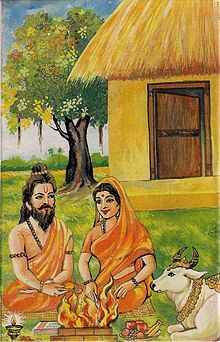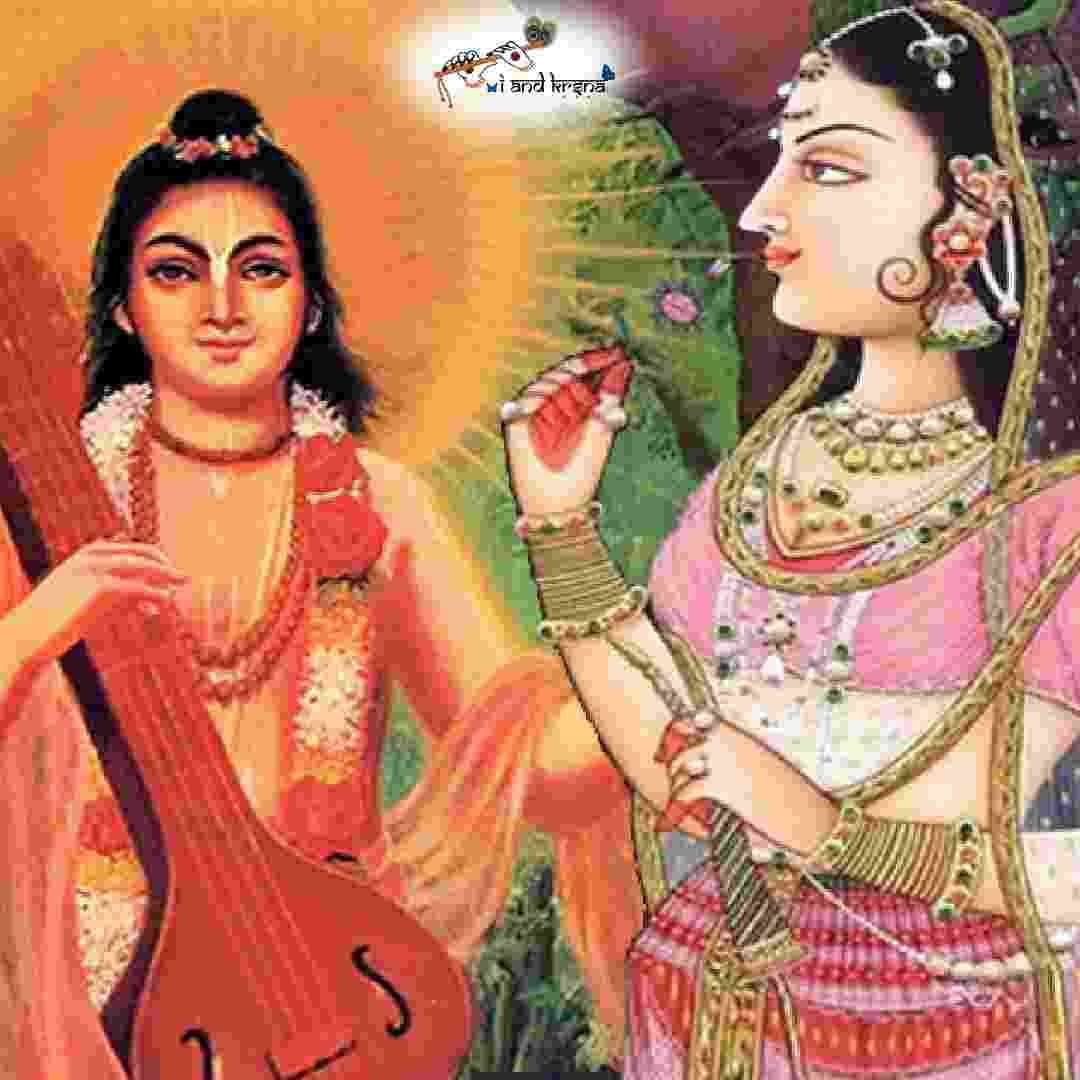The Absolute Truth is understood differently according to the position of the student. Some understand the Absolute Truth as impersonal Brahman, some as localized Paramatma, and others as the Supreme Personality of Godhead, Krishna, or Vishnu. Brahman, Paramatma, and Bhagavan, the Supreme Personality of Godhead, are not different. They are simply different aspects of the complete Godhead. Looking at a mountain from a distance, we may see a hazy cloud, and if we come nearer, we may see something green. If we actually climb the mountain, we will find many houses, trees, and animals. Our vision is of the same mountain, but due to our different positions, we see haze, greenery or variegatedness. In the final stage, there are varieties-trees, animals, men, houses, and so on. The Absolute Truth is not without variety. Just as there is material variety, there is spiritual variety. Because the Mayavadi philosophers are seeing the Absolute Truth from a distance, they think that the Absolute Truth has no variety. They consider variety to be material, but this is a misunderstanding. The Absolute Truth is described as variegated in Brahma-samhita (5.29).
Unless we understand the variegatedness of the Absolute Truth, there is a chance that we will fall down. It is not sufficient simply to stick to the indefinite, impersonal feature of the Absolute Truth. Because the impersonalists are not allowed to enter the Vaikuntha planets, they simply remain in the Brahman effulgence. Thus they fall down again into material variety. We have seen many impersonalist sannyasis who first of all give up the world as false (Brahma satyam jagan mithya). They consider themselves Brahman (aham brahmasmi), consider the world false (jagat is mithya), and, having nothing more to do with the material world, finally say, “I have become Narayana.” Then they come to the stage of daridra-narayana (poor Narayana). They become Narayana, but for want of anything better to do, for want of variegatedness, they take up material humanitarian activities. Although they consider their wives mithya (false), they return. “You have already left. Why do you come back again?” the wives ask. This means that these so-called sannyasis have nothing to do. They undergo serious penances and austerities to reach the platform of impersonal Brahman, but because there is no pleasure there, they again descend to enjoy material variety.
- We may build a nice spaceship and send it off into space, and the astronauts may go up there and fly in the impersonal sky, but eventually, they will become tired and pray to God, “Please let us return to land.” We have read that the Russian astronauts were simply missing Moscow while they were traveling in space. This impersonal traveling is actually very agitating; similarly, the impersonal realization of the Absolute Truth cannot be permanent because one wants variety. A fall down is inevitable. When one gentleman read my book Easy Journey to Other Planets, he became very enthusiastic about going to other planets. “Oh, yes,” I said, “we can go with this book.” “Yes,” the gentleman said, “then I shall come back.” “Why return? You should remain there.” “No, no,” he said. “I don’t want to remain. I just want to go and come back.” This is the “enjoying” mentality. Without variety, we cannot enjoy. Variety is the mother of enjoyment, and Brahman realization or Paramatma realization does not give us steady ananda, bliss. We want ananda. Anandamayo ‘bhyasat. The living entities are Brahman; Krishna is Parabrahman. Krishna is enjoying perpetual ananda, and, being part and parcel of Krishna, we also want ananda. Ananda cannot be impersonal or void; ananda entails variety. No one is simply interested in drinking milk and eating sugar, but with milk and sugar, we can make a variety of foods. There are hundreds of preparations. In any case, variety is required for enjoyment.
Source: A.C. Bhaktivedanta Swami Prabhupada (2007 edition), “Teachings of Lord Kapila, The Son of Devahuti”, Page 47 & 48





















Leave A Comment